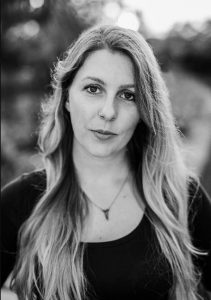
Dead Women
The dead women are the topic of conversation at dinner. One in a dumpster. One, a hunter found, in the wooded swamp outside of town. One, with a hand that had fallen open, palm asking please, please don’t forget me. One in a river, three in the swamp. Some degraded beyond recognition. The most recent, on the side of I-10. All together eight women, all of them sex workers, white girls and black girls, found in Jennings, New Iberia, Iowa, Louisiana.
It is not the conversation for polite company, but Moira and John pride themselves on the subversive. Of course, these dead women will be discussed over moderately priced cabs.
I love this about them.
Moira and John host: Moira, a history professor at the local university, and John, a chemical engineer at one of the plants. Some of the guests, I know, and some I do not.
It is the end of Moira’s semester, and they were so happy when I arrived. They demanded I stay the night. You could head out first thing. You could at least have coffee with us. Once, I would have acquiesced, but tonight I’m only thinking of my trip back home, willing myself to stay sober enough to drive. Just an hour, east on I-10, a straight shot home to Lafayette.
On the table sits a big bowl of potato salad, yellow and shining. I watch it while the others stand around the table, chatting and watching Moira and John. Moira has tight, dark curls, and a face that isn’t quite pretty. She is smart and loud and funny, so it doesn’t matter.
From the corner where I stand in the dining room, I can see Moira standing over the stove, telling her husband that the pot is too hot to set on the table.
“A towel?” she yells. “It’ll burn through.”
“Who’s the scientist, Doctor?” John replies. John is tall and all arms and legs. He towers over Moira who looks up at him with her hands on her hips.
I take a seat at the table, put my purse on the chair back, and stare at a bottle of wine. I want more but think of the cops monitoring the highway home.
Finally, John marches out of the kitchen, holding the boil pot with potholders on both of his hands. Moira fusses behind him with a hot plate and a towel. She puts the hot plate down, just by the potato salad, then drapes the towel across it and folds it back over, a sacred ceremony. She gestures to her husband: put the damn pot down.
There is comfort in the steaming pot, the scent of the thick broth, of venison sausage, of pulled chicken.
“Sit!” Moira commands the guests. They mill about, make moves toward the table. “Go sit by Erin,” Moira pushes a man near my age. He is also tall and thin, a young John with shaggy hair. He looks down but obeys. I feel my phone buzz in my purse, against my chair back. Maybe it is Sam. I want to get home to him.
Moira carries bowls of rice from the kitchen and places them in front of people at the table. All together, we are twelve.
With my bowl in front of me, I ignore the man to my side and ladle gumbo into my bowl. I take a large spoon of potato salad and throw it on top. The first bite is life-affirming. No decision I make today is so crucial that it can’t be changed. It is thick and silky and salty.
Moira hovers over the table, making sure everyone has filled a bowl before she fills her own. John watches his wife. Brown, gravy dots his beard.
“Erin, Adam, Adam, Erin,” Moira says, taking her seat at the head of the table. Adam is the man beside me. “Adam is John’s nephew and a Chemical Engineer too. He interviewed at Citgo yesterday.”
I smile, and he gives a small wave.
“I’m not sure I want to leave Texas.”
Moira waves this away. “You’ll love it here.”
He starts to speak, but someone yells down the table to Moira.
“The girl on the highway, her throat was slit. Who do you think killed her?”
“Her arms were covered in bruises,” says someone else.
I feel a creeping feeling in my stomach, drawing away the heat from the gumbo. I refill my wine glass a third time.
Moira shakes her head. “Conspiracy.”
“Serial killer!” John calls from the kitchen. “It’s a serial killer. All of those girls dead in a thirty-mile radius.”
Moira crosses her arms and sits back. “Her throat was slit. Someone didn’t want her to speak.”
“We are talking about eight dead prostitutes, Moira. Doesn’t that sound like a Jack the Ripper?”
She waves her arms at him. She is drunk. “Their innards aren’t decorating the highway. Serial killers like a show.”
“I’m glad I’m not a young woman,” one of the other teachers says. “They are almost all under 30.”
“It’s a cover up,” says Moira. “You have to know these towns. That many dead girls?”
Women, I think. I do not want to think about dead girls or dead women. I want to think about Sam who wanted me to stay home to begin with. His wife is out of town for the whole weekend. I’m not too drunk to drive, I think. I know which exits the cops hang out at. I resolve to stick to the speed limit.
I knew about the previous murders. I wasn’t afraid. They were all sex workers; they worked out of the same hotel. They had rap sheets, drug habits. Crimes like this just remind you that they can happen, not necessarily to you.
The guests carry on.
“The Lafayette paper said –”
“Yes, but did you read—”
They mention neck bruises, the particular mix of semen in the vagina, the dirt and blood under the nails.
“Our paper says it’s a serial killer”
“Parish cops are not incorruptible.”
My stomach turns again. This morning, Sam asked me why I wanted to hang out with “those old people.” We were lying in my bed, his arm around my shoulders, his other hand moving slowly down my stomach. I didn’t bother mentioning that he was closer to their age than mine.
“They’re my friends,” I said. “I haven’t seen them in months. Come with me.”
Sam laughed at this. Of course, he wasn’t going to come.
“I’m going,” I said.
“What about the slit throat?” This question brings me back to this dinner, which now feels as if it will never end. I want my little studio apartment. I want to curl up with Sam, spend a slow Sunday morning with sunny-side eggs and black coffee.
I think about my apartment: my own, without roommates, above a garage, one big room and a tiny bathroom. I feel years have passed since I lived in Lake Charles, even though it has just been one. My parish job pays more than any job before. I don’t miss the years I spent in Lake Charles: grad school and then low-paying jobs. It was easy living, late dive bar nights, weekends at camp houses on Big Lake, a far cry from my Tennessee home.
The apartment, now, is my haven, full of crazy, mid-century furniture inherited from an aunt: a wooden cabinet with an art deco inlay, two short, puffy little chairs that almost curved all the way around you, a wooden desk with hairpin legs. I bought a couch and a bed for myself. It is cozy. I love it because it is my own, because I have the entire say in how it looks, because I can see every corner at once. It feels safe. Amidst the chatter of murder and conspiracy theories, I want nothing more than to be home, door locked to the world outside.
“Hellooo.” Moira is standing at the head of the table. “Erin?”
“Sorry, what?”
“What do you think? Serial killer or conspiracy?”
“It’s really grim isn’t it?” I ask. “Talking about them at dinner.”
“It’s current events.” She is not the least bit worried.
“I don’t know. I don’t know enough about it.”
“You should wildly speculate like the rest of us.” John is smiling, sensing my unease.
“I’m a historian, John. My job is to wildly speculate on events. These just happen to be very recent events.” The attention turns back to Moira and John, and everyone laughs. John gets up to grab another bottle of wine.
I take a sip of my wine. Adam says, quietly, “it is grim, isn’t it? I saw the news, but I hadn’t really thought of it until now.”
“I hadn’t either. I should, but I don’t want to.” Thinking too hard might bring me somewhere unsafe.
He puts a hand on the back of my shoulder. It is warm and friendly. The others start to get up from the table, moving to help in the kitchen or sit on the couch.
I glance at Moira; she is oblivious, talking to John, gesturing with her entire body.
“Do you want more wine?” Adam moves his hand to his own empty wine glass.
“I have to drive back to Lafayette.”
“Tonight?”
“My boyfriend wants me back.”
I watch the implication cross his face.
“Moira led me to believe otherwise.”
“She doesn’t know.”
“Complicated?”
I nod and take another sip of my wine. I close my eyes to taste it, let it burn the back of my throat.
“Maybe stay?” he says.
“I’m going to get some air,” I say.
I stand on the back patio, wishing I was a smoker with a reason to be outside. The bricks on the patio are sweating in the December humidity, it’s still above 60 degrees outside and as humid as a swimming pool. I draw a line in the condensation with my foot. I feel too tipsy to drive right now. I worry in an abstract way, that there are too many things to manage, to think about.
I look around their yard. It’s dark, but the patio’s floodlights cast harsh bright stripes on the yard. There are stakes in the garden for tomatoes, but no vines. Beyond the garden, the low chain-link fence cannot hide where the land slopes into bayou. Cattails grow haphazardly. The water ripples at a disturbance. I shiver, thinking of womens’ bodies settling into the murk. I take one deep breath and turn to go inside.
Inside, I pass the guest room where the door is only half shut. Adam is in there; his shirt off, his back to me, and I can see the broad definition of his shoulders. I feel a sudden ache, and I want to crawl to him. He could curl around me. I stand and watch him a second longer, dead silent. He starts to turn, and I run to the bathroom.
I look at my face in the mirror, flushed red with smudged eyeliner. The humidity had melted my face. I squeeze some toothpaste out on my finger, then put it in my mouth and swish it around. I spit, run some water on toilet paper, and wipe off the makeup under my eyes. I check my phone, no word from Sam, but his existence feels like a heavy weight all around me.
*
I finally leave around 11:30 with that hour drive ahead. I feel sober. On the way to the highway, I drive through the downtown strip: lots of young people are out in front of the bars drinking and smoking. From the car, they all look beautiful and happy. For a second, I want to stop and join them. I want to be anywhere but where I am.
The highway calms me down. There are few other cars, and the road is well-lit and freshly paved. Why had they insisted on talking about those girls in that vague, glib way of people drinking? Of academics, always at a distance, always analyzing, asking everyone to zoom out.
I call Sam to let him know I am on my way. No answer, and I leave a message. Hey, I’m headed home, you coming over?
The stretch of I-10 between Lafayette and Lake Charles is completely flat, lined by rice fields and littered by fast food restaurants. I know the stretch by the exits: Iowa, Welsh, Jennings, Crowley, Scott. Otherwise, there is little to tell each mile apart. Almost midnight, the streetlights along the highway grow intermittent. Not all of them work. Any traffic has thinned. My mother would tell me to watch out for drunk drivers. Moira told me to watch out for drunk drivers as I left. She had been faux-enraged that I was leaving. “We have everything you could need here! Look at this handsome nephew! If you have to leave, take this food!” The highway stretches infinitely ahead. I try Sam again.
The phone rings, and all I see is Adam, shirtless, back turned. We had barely spoken, but the appeal of this new person is easy, all potential, no baggage and dead weight. I shake him from my head, shake away the option. Sam wants me back tonight. I like that about him, that he wants me close, whether or not he stays the night with me. Still no answer on the line.
I begin to worry, just a little. He can get so irritated when I don’t answer, and our plan is to meet at my apartment, assuming all went well with his wife. Or, as well as it could. He would stay with me for a week or two. It had felt like a good idea to be out of town when he told her, though now I wish I had just stayed home. I don’t know much about his wife; she is a dentist. I can care less about her the less I know about her. Sam doesn’t talk about her much, unless it is to say he can’t get away for the evening.
I realize I have been driving in silence when I pass the Welsh exit. I find the Cajun station; it is playing Zydeco, which is usually irritating. Right now, though, the accordion, the nasally butchered French lyrics are a comfort. They lighten the night.
When I see the Jennings exit ahead, police lights flashed red and blue in my rearview mirror, as if on cue,
“Fuck,” I say. I slow, as I drive up an overpass to park under the streetlight at the top. To my right, the gas stations and fast food restaurants off the exit ramp are bright and not too far away. I stop the car and watch the cop in the rearview mirror, typing into his computer, doing whatever cops do for ages before they finally get out of their vehicles. I am sober; I am certain. I don’t see any other cars on the horizon.
“Fuck,” I say again. I chug an old plastic bottle of water, watching him in the rearview mirror, swishing it in my mouth. The water tastes like plastic. I think of my apartment and its safety. I look out into the night: the low-lit highway, the haze of humidity, the lingering exhaust. This is too vulnerable. This is unsafe.
He gets out slowly, and I can see his beer belly as he shuts his car door. A car races by on the interstate, but he doesn’t even look at it. I take my eyes off of him to watch the car ride away; its taillights shrink to faint red dots on the horizon. I roll down my window; it is still humid out. The moisture billows into my car. I can smell exhaust and tar and wet grass. I reminded myself what I am doing, where I am going, who I am.
“Ma’am” he says.
“Yes?”
“You’ve got Tennessee plates?”
I try to make these words make sense.
“Sorry?”
“Your license plate, it’s not local. Are you from Tennessee?”
“Oh,” I say. “Yes, I moved to Lafayette not too long ago. There was so much to do. I hadn’t thought about them.” Mostly true, I did completely forget about my plates. The car is still in my mother’s name, though I have lived in this state for almost four years. I realize I have avoided the hassle of tickets or getting pulled over my whole life here.
“You need to do that. How do you like Louisiana?”
“Oh,” I start, wondering where this is going. “It’s good.” I try and stop a shiver.
“Good. I’ve never been to Tennessee. What brings you down here?”
“Work.” I try to say it cheerily. My cell phone buzzes once on the console.
“What kind of work do you do?”
I will another vehicle to pass by, for it to be daylight. I want to have made different choices. Sweat pools under my legs on my car seat. I feel it drip from behind my knees.
“Social services,” I finally say. “Social work.”
“You definitely have a Tennessee accent. Have you spent any time in Jennings?”
“I haven’t.”
“You should visit sometime. We got better gumbo than Lafayette.” The fear of a DUI dissipates, but a new one creeps up my spine. I do not want to talk about gumbo on the side of a highway after midnight.
I think of the dead women in Jennings, about Moira’s suspicions of police corruption. A couple of cops had been taken off the force, and it was rumored to be related. That was what someone said at dinner. Or maybe they were on extended leave? Did they always get everyone though? That was the thing about corruption. It runs deep.
“I guess I will.” My phone begins vibrating again on the console. “My husband is probably worrying about me. It’s so late.”
The cop frowns. A truck speed by; my car shudders faintly in its wake.
I swallow and put on my serious voice that I use for clients: “did you want anything?”
“I noticed your plates. You need to change them. It’s a residency requirement.” His casual chat has turned abrupt.
“Yes sir,” I say.
The silence hangs thick between us. I barely dare to breathe.
“Can I go?” I finally ask.
He nods slowly and turns back to his vehicle but doesn’t walk away.
“You should come to Jennings sometime. I’m Mike.”
I look up and out of the window to see him. He isn’t looking at me; he is looking out over the splendors of the exit, at the Shell and Tobacco Plus, Popeye’s and McDonald’s. His hands are on his hips, which makes his belly poke out even more.
“Ok,” I say, quietly.
Mike takes a step toward his car and looks back at me. The right side of his face is illuminated by the lights. He looks sad, maybe. Then, he turns again and walks away.
I move slowly inside my car, scared to move too fast and catch his attention. I put my foot on the brake, slide the car into gear, then nudge the gas. My car moves easily, as if it knows slow movements will calm me.
*
My apartment is an over-the-garage, mother-in-law suite, separate from the main house where a family with young children lives. They were happy to rent the apartment to a young professional who was no longer a partying college student. When I pull up in the driveway, the garage floodlight switches on. On the left side of the garage, a wooden staircase leads up to my small deck and door. The porch light is also on. I feel relief to think that Sam must be there.
I turn off the car and grab my purse and the grocery bags with leftovers that Moira sent with me.
Inside, Sam is sitting on my round little chair, and the floor lamp next to him is off. I can only see shadows on his face.
“You were supposed to be here an hour ago.”
“I got pulled over.” I put my bags down by the door. “It was really weird.”
“Sure.”
“What?”
“Pulled over? You drive like a mawmaw.”
“I know. It was weird.” The back of my neck prickles.
I walk over to him and lean to give him a kiss. He turns his head to the side. I turn on the lamp next to him and look at him, his long, pronounced features, his Roman nose, his high cheekbones. He gazes at some spot on the floor, away from me.
“Are you okay?” I go to pick up the bags and start to put the food away.
“Fine.”
It strikes me suddenly that Sam is drunk. I can smell it now, like a switch has flipped. He doesn’t drink often, but now the scent of whiskey is everywhere. I open the fridge.
“Do you want something to eat? Eggs or toast or something?” I pull out the eggs.
He crosses his arms. “Where were you?”
“I told you. I called when I left Lake Charles. I got pulled over in Jennings.”
“Where’s your ticket?”
“I didn’t get one. It was weird. It was like he just wanted to talk to me.”
Sam stands up. “What happened with the cop?”
“He just asked me a bunch of questions.”
“And let you go?” He says this as if it was the most preposterous thing he has ever heard.
“What’s going on Sam?”
“Was he hot?”
I put the eggs on the counter. “What the hell, Sam.”
He stands over me, a good six inches taller, thin, wiry muscles.
“Was. He. Hot?”
“What the fuck kind of question is that? Jesus Christ. Getting home was hell. You need to drink some water.”
In a second, he has both of my arms in his hands, tight. I pull away, but he grips them firmly. “Just answer me.” I start moving.
“Let go.”
“Answer me, and I’ll let go.”
I look up in his eyes, they are dark and blank. His brow is wrinkled, furrowed.
“No, he wasn’t hot, Sam. He had a beer belly. Maybe he was lonely. Maybe he wanted something from me. I don’t know. He let me go. I’m here. What else do you want?”
“The fucking truth, Erin.” He let me go, like he could throw my arms to the floor.
“What happened with Regina?” I move toward him, but I can tell by his face he’s told her nothing.
“I want you to tell me why you took so long to get home. Did you meet someone at Moira’s? Cops don’t just let people go without a ticket that late at night.”
“You need to leave.” I say it firmly, tiredly.
Before I can move, he has both hands around my neck, and I’m against a wall. I try to push his chest, to slap at him, but he is stronger than I can ever be. I cough, choke, struggle for breath. I think of the dead women. How someone was close enough to them to bruise them, to slit their throats. Even if it was a stranger, a serial killer, they had to trust them enough to get that close.
I gasp for breath and let out a ragged scream. Against all logic, I hope the family does not hear me. I think how I do not even want the police to help. Sam loosens his grip and shakes his head. I put my arms between his and push them off of me. His shoulders slump, and he will not look at me.
“Sit down,” I say. “I’ll make you some food.” I watch him walk toward the table and sit, still gazing down.
*
Earlier, when I was leaving Moira’s house, John had walked me to my car.
“You okay, kiddo?”
“I’m okay. Just a lot going on.”
“Ignore her. She thinks she knows what’s best for everyone. You don’t have to see Adam, we’ll still invite you over.”
I laughed. I had wanted to tell him everything. That I was dating a married man, that he was leaving his wife for me, that I found his possessiveness exhilarating and at times a too much. That I was terrified to leave, to head home, but that my home was the only place I wanted to be. That I was completely spooked.
“Invite me over next time he’s in town,” I said.
John gave me a hug and opened my car door for me.
“Be safe out there,” he said.
*
I put a frying pan on the hot plate and crack the eggs into a pint glass. I hold each end of the egg between my finger and my thumb and tap it once on the countertop. Then, I break the egg into the glass. I add a little water and beat the eggs with a fork.
“I didn’t tell Regina,” he says from the table.
I keep beating the eggs. I don’t look at him.
“Why not?” The pan is hot, and I pour in the eggs, throw shredded cheese on top.
“I can’t.”
I keep cooking. Maybe the cop had just wanted to talk to someone. Maybe Sam had just had too much.
For the first time all night, I feel not fear or anxiety, but anger.
“Why didn’t you tell her, Sam?”
I hear him inhale, but he doesn’t answer, and I don’t turn around. I finish the eggs and turn off the heat, lifting the pan. I feel the creeping feeling in my neck again, and I whirl around.
I know that Sam is right behind me. I know that the pan hits his arm. He yells, almost a bark, and I strike him again with the pan, maybe on the shoulder. The eggs are on the floor in a glistening mess. I grip the pan and breathe heavily. Sam stares at me and clutches his arm with his other hand. We stand, staring at each other: me, with my back to the stove, and Sam, with the rest of my apartment behind him. I feel the adrenaline course through me; I see how his eyes cannot focus.
I feel anger and power and powerlessness and sadness, and I try to make a decision. I will put the pan down and leave the eggs. I will run cold water over a rag and put it on Sam’s arm. I will send him to his car, and that will be it. I will leave him to explain his injuries, to account for his own scars, to make his own choices about his marriage. I will keep moving forward. I will make it.
Tomorrow, Moira would call to check on me. She would share more rumors and speculation. The murders would never be solved. Moira would invite me over. I would never make that late-night drive again. Maybe I would let Adam wrap his arms around me. Maybe I would always choose something safe over something exhilarating. Maybe not. Maybe I would give in to impulse again and again. I had to own my story. I knew I controlled it. This was my only power.
I put down the pan, but keep my eyes on Sam. I get out a rag, turn on the faucet, and feel the cool water run over my hand.
Allie Mariano’s writing has appeared in CutBank, The Citron Review, Another Chicago Magazine, New Orleans’ The Times-Picayune, and other places. This year, her short story collection, Dead Women and Other Stories was a finalist for the Black Lawrence Press Hudson Prize. When she’s not writing or teaching, she can be found biking in the Ouachita Forest.
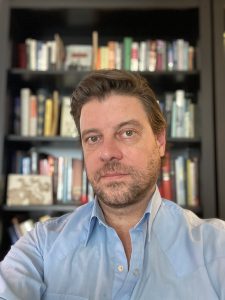

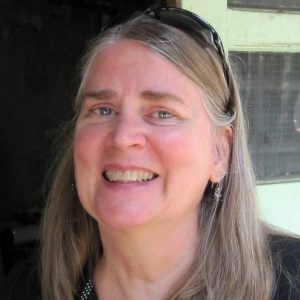
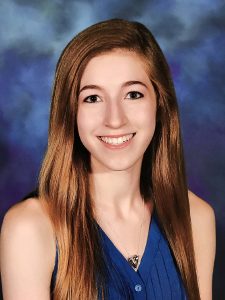
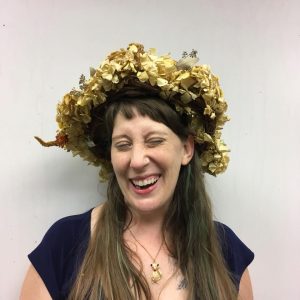
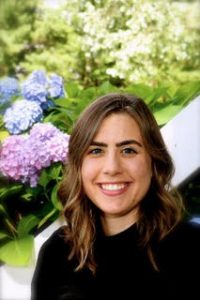
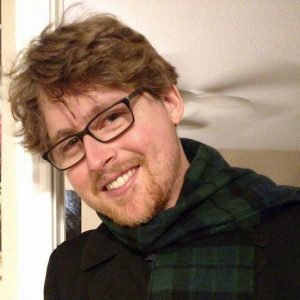

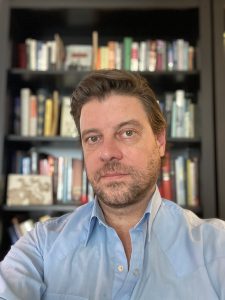 Editorial board members read through hundreds of submissions to narrow the list to seven finalists, which were then reviewed by the 2020 judge, Karen Dionne, the bestselling author of The Marsh King’s Daughter and The Wicked Sister. Dionne described “Young Americans” as “…[a] short story [that] ticked all the boxes for me. A nuanced, pitch-perfect father-daughter road trip told with an economy of language and an easy rhythm and flow that sucked me right in.” She went on to say, “Clearly plotted, well-drawn characters, along with just the right mix of atmosphere and insight make this story a winner!”
Editorial board members read through hundreds of submissions to narrow the list to seven finalists, which were then reviewed by the 2020 judge, Karen Dionne, the bestselling author of The Marsh King’s Daughter and The Wicked Sister. Dionne described “Young Americans” as “…[a] short story [that] ticked all the boxes for me. A nuanced, pitch-perfect father-daughter road trip told with an economy of language and an easy rhythm and flow that sucked me right in.” She went on to say, “Clearly plotted, well-drawn characters, along with just the right mix of atmosphere and insight make this story a winner!”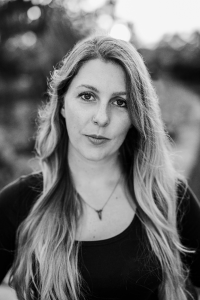 This year’s second place goes to Arkansas author Allie Mariano for her story, “Dead Women.” About this story Dionne says, “A character at a crossroads is always intriguing; how did they come to this place and what will they do going forward? I love stories that focus on undoing the consequences of bad choices. That this story is also beautifully written is a bonus.” The second-place prize is $750.
This year’s second place goes to Arkansas author Allie Mariano for her story, “Dead Women.” About this story Dionne says, “A character at a crossroads is always intriguing; how did they come to this place and what will they do going forward? I love stories that focus on undoing the consequences of bad choices. That this story is also beautifully written is a bonus.” The second-place prize is $750.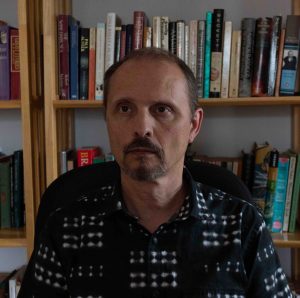 Third place goes to Philadelphia author David Updike for “Feral Wives.” Dionne writes, “This short story begins with an irresistible premise: women all over the country are leaving their families to live in groups in the forest, constantly on the move, building temporary shelters while they hunt and fish and forage. An engaging and thoughtful commentary on what it means to shed the labels of ‘wife’ and ‘mother.’” The third-place prize is $500.
Third place goes to Philadelphia author David Updike for “Feral Wives.” Dionne writes, “This short story begins with an irresistible premise: women all over the country are leaving their families to live in groups in the forest, constantly on the move, building temporary shelters while they hunt and fish and forage. An engaging and thoughtful commentary on what it means to shed the labels of ‘wife’ and ‘mother.’” The third-place prize is $500.